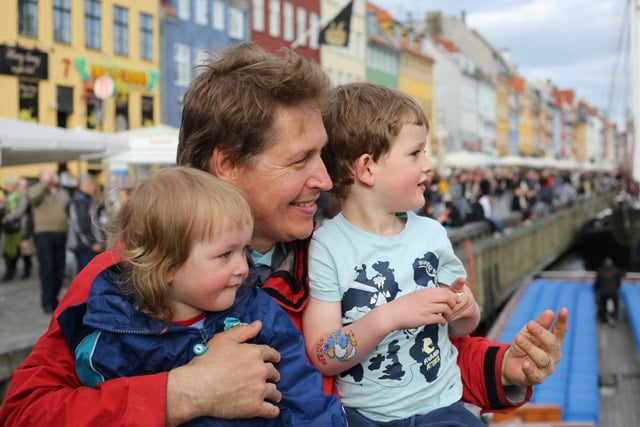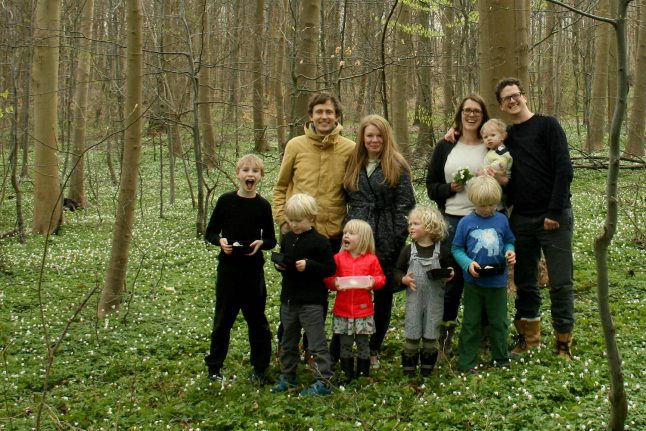MY DANISH CAREER
‘Working in Denmark has allowed me to enjoy my time with my family’
In the latest edition of My Danish Career, The Local spoke with Australia native Tim Farrell, who said one of the best things about working in Denmark is the sense of teamwork among his Danish colleagues.
Published: 13 February 2017 08:29 CET

Farrell is returning to Australia soon but said his time in Copenhagen has been good for his family. Photo: Gemma Farrell
Tim Farrell moved to Copenhagen from Canberra, Australia in June 2014 with his wife and young family. He is a Senior Advisor at the Copenhagen Centre on Energy Efficiency based in the UN City Building in Nordhavn. The Copenhagen Centre also serves as the Energy Efficiency Hub for the Sustainable Energy for All (SEforALL) initiative.
Farrell will be returning to his home country this summer so The Local asked him to reflect his time working and living in Denmark on the eve of his return to a more familiar environment.
“I have enjoyed the more flexible work hours in Denmark, where working overtime and not spending time with your family is not considered being successful. The whole ethos towards work life balance has meant that I have been able to enjoy my time with my family here whilst still building my career and undertaking interesting, challenging work which has a high impact and is very rewarding,” he said.
“I have been very fortunate to be able to travel abroad and have visited many interesting countries through my work. Part of my job here over the past two years has been my role as Chair of the United Nations Economic Commission for Europe’s (UNECE) Group of Experts on Energy Efficiency focusing on promoting energy efficiency in its 56 member States.”
Farrell is contributing to SEforALL's ambitious target of doubling the global rate of energy efficiency improvement by 2030 by identifying and promoting best policy practices globally, developing a knowledge platform and facilitating global collaborations.
“I find the Danish workplace to be one in which I am valued and appreciated for my work, but it is also refreshingly non-competitive with a real feeling of teamwork. People are generally more humble in their work and achievements here,” he said.
Farrell and his family have enjoyed many of the benefits of living in Denmark, including affordable child care, but the relatively high cost of living has meant that staying in Copenhagen for the long haul on one main salary is not a viable option. In addition, the Australian finds the long, dark Danish winters quite a challenge.
“Despite the supportive expat environment, there is a downside of living so far from family and friends, particularly when you have a young family. We miss the support of close family,” Farrell said.
“I also feel slightly removed from the Danish experience as I work in a very international environment. Having said that, when I started working here few people could understand what I said due to my strong Australian accent! The language is a huge hurdle. Not speaking Danish means I can’t read newspapers or listen to local news, so in that sense I am sure I do miss out on a lot.
Farrell said that after nearly three years in Denmark he still doesn’t “feel fully immersed in local life and community”.
“I find my colleagues very sociable and like anywhere it takes a while to meet a circle of friends, but making an effort means it is rewarding in the long term,” he said.
“I have noticed that many expats relocate to Copenhagen and their partners come with ambitions to work but in reality many struggle to find it. Some forge their own way and start small businesses but that also takes time to build a network. My wife, Gemma, works as a freelance photographer here and has been building her business over time. The benefits of affordable daycare for our youngest and the after-school activities for our eldest have made it possible for her to build her successful career,” he added.
As Farrrell enters the final stretch of his time in Copenhagen he said it’s the friendships he’s made here that he’ll miss the most.
“It will be sad to say goodbye but I am sure our paths will cross again and I am hoping we will have a few visitors to Australia. I’m looking forward to seeing my family and friends again in Oz, and immersing myself in my local community again.”
Url copied to clipboard!


 Please whitelist us to continue reading.
Please whitelist us to continue reading.
Member comments